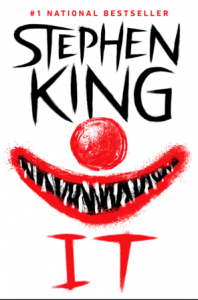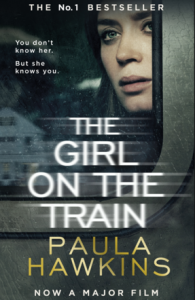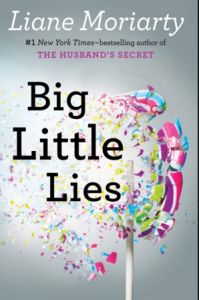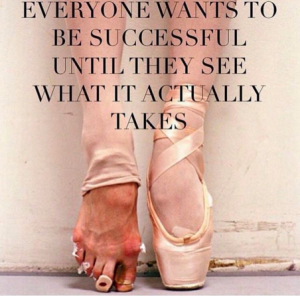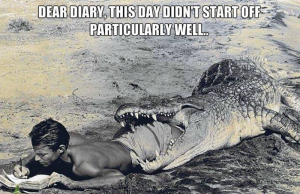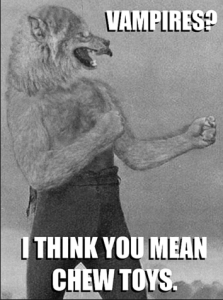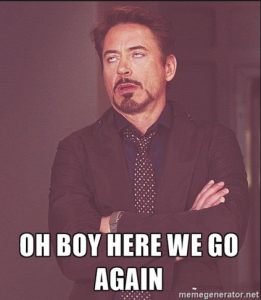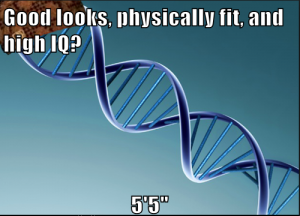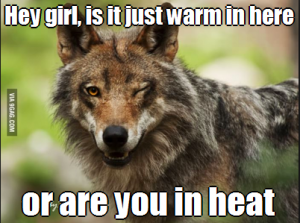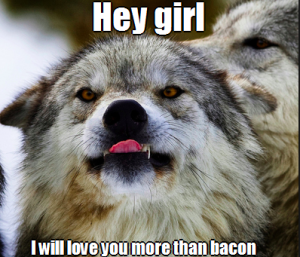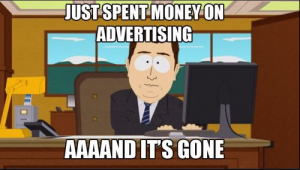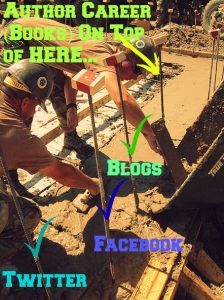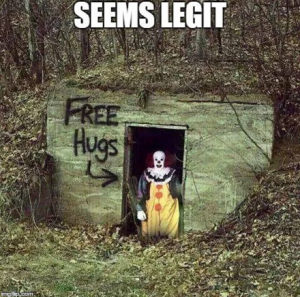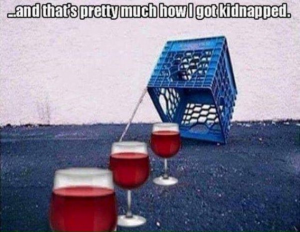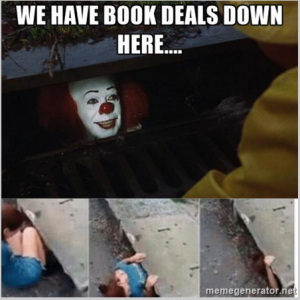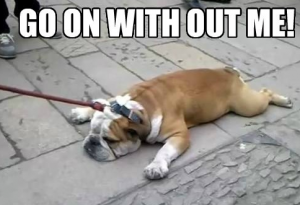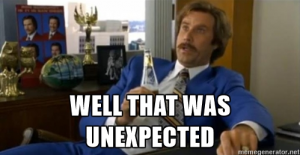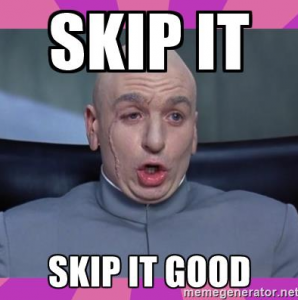Kristen Lamb's Blog, page 31
May 23, 2017
Shame, Shame, We Know Your Name—Or Do We? Shame & Fiction
 Image via Flickr Creative Commons, courtesy of DualD Flip Flop
Image via Flickr Creative Commons, courtesy of DualD Flip FlopRecently, I wrote a guest post This is the Reason All Great Stories are Birthed from Shame. It was a tough post and I needed a nap after writing it. It forced me to peel back layers I hadn’t touched in years. But the post got me thinking about probably the single most important element of great fiction
SHAME.
Since that post was not per se a craft post, I wanted to explore what I began on that blog here today. I firmly believe shame is the critical ingredient for fiction to resonate. It’s the difference between a forgettable fun read and a book we keep and read over and over.
Some Examples
I dig examples. I learn better when I have some to work with, so sharing some goodies with you today.
It by Stephen King
It is, of course, terrifying and is the main reason a disproportionate number of Gen Xers hate/fear clowns. But what makes the story so great is SHAME. Big Bill (protagonist) made the paper boat for his little brother, the paper boat that was then was swept into a gutter, the gutter where the beast was waiting to devour an unsuspecting six-year-old (thus kicking off the story).
Bill also has a terrible stutter. He is ashamed of his stutter and suffers false guilt for the death of his little brother Georgie.
The Losers Club
All the characters in this novel suffer from profound shame, especially Bill’s allies (who call themselves The Losers Club). Ben is morbidly obese and his mom a single parent in the 1950s. Beverly’s father beats her and is sexually inappropriate with her. Stan lives under the cloud of being a Jew, and Mike is black. They face shame in regards to who they are in the WASP dominated world of post WWII America. Richie is socially awkward and tries too hard. Eddy is a hypochondriac, ashamed of his perceived (yet false) delicate constitution.
Without shame, this story would be uninteresting and forgettable because the real monsters in this book are not (only) what is lurking beneath Derry (though that sucker is pretty terrifying), rather what is in each of the children then later adults that also must be defeated—their shame. The monsters who look a lot a hell of a lot like people.
The Girl on the Train by Paula Hawkins
The protagonist is a raging alcoholic propelled by real and false shame. She is ashamed (obviously) that she is a drunk, but she’s also ashamed her drinking supposedly ruined her “once perfect” life. Yet, once she is pulled into a potential murder mystery, she uncovers not everything is as it seems and in seeking truth, she also uncovers the seeds of her shame were not planted by her.
Big Little Lies by Liane Moriarty
Three protagonists drawn together over a seemingly innocent infraction in a Kindergarten…that ends in murder. All three protagonists are propelled by shame.
Madeline was abandoned by her first husband, who now has decided to move practically next door.
Celeste has a perfect life that is a perfect lie. Because she is perfect, who can she turn to with the truth?
Jane is an outsider and mother of an illegitimate son, fathered by a man whose real name she doesn’t even know.
The Ones We KEEP
When I think of all my favorite characters? The ones I remember and keep in my heart forever, why do I love them? Their shame. Harry Bosch is ashamed that he was the son of a murdered prostitute, that she was thrown away by the system. Everyone matters or no one matters.
Mickey Haller (The Lincoln Lawyer) is ashamed his father never loved him, that he never measured up. He’s ashamed he failed an innocent client who’s serving life in prison because that was the only way Mickey could save him from the needle.
The Hobbits are ashamed they are too little to make a BIG difference.
Shadow in (American Gods) is ashamed of going to prison, believes he’s culpable for his wife’s death.
Y’all get the gist.
Finding the Shame
 Image via Flickr Creative Commons, courtesy of Noemi Galera.
Image via Flickr Creative Commons, courtesy of Noemi Galera.Some of us older folks recall that schoolyard taunt, “Shame, shame we know your name!” But I think this nasty taunt can serve as an interesting guidepost when crafting visceral and dimensional characters. When we begin with our story idea, I feel it’s imperative to look for, find and NAME the shame.
When we start out? No, shame, shame we DO NOT know your name.
But we need to.
Shame is a powerful driver of character decisions and actions. It’s the linchpin for all the emotional armor, the lock on the box of the inner demons. The story problem is the crucible for exposing then firing away the shame. That is how we know the protagonist has evolved to a hero. We can’t accurately determine any character’s Goal, Conflict ,or Motivation until we know the dark place they’re doing everything to protect.
Finding the shame can elevate an okay story to an unforgettable one.
A Good Example
 Image via Flickr Creative Commons courtesy of Alan Levine
Image via Flickr Creative Commons courtesy of Alan LevineFor instance, last week I had a student of the log-line class call me for a consult. She had an interesting story but it was all falling flat for a reason she couldn’t quite grasp. I liked her idea, but sensed she was right. Something important was missing.
Her story was set in the 70s and a young girl was running away from home because of her alcoholic mother. Girl jumps out of the frying pan and into the fire, so to speak when she runs away and gets tangled in a world of predators (sex, drugs and rock and roll). Yet, what happened was the story just was a series of bad situations.
Running away is not a story goal. It’s passive and stories need active goals. Protagonists can run away but heroes return to face and conquer. So how could this protagonist return and when she did, what exactly would she face and conquer?
Her story idea lacked the connective tissue it needed to fully come together.
In this case, the connective tissue was…
You got it. SHAME.
I asked the writer, “Okay so WHY does the mother drink? WHY is she an alcoholic?” Because an answer of, “Well it’s genetics” or “She just likes Jameson way too much” isn’t meaty enough for a good fiction.
I challenged her to think about why the mother drank. What was HER shame that she was numbing with booze?
The writer actually hadn’t asked that critical question, btw.
Since the story is set in the 70s, women were very vulnerable. Mom has four kids. She wouldn’t be able to get a bank account without her husband’s permission. Odds were she had no money of her own and no way to get it without her husband’s knowledge. Divorce was highly frowned on and if she did get a divorce the courts likely would have ruled in the man’s favor.
So why does Mom drink? *puts on thinking cap*
 Image via Flickr Creative Commons courtesy of davidd
Image via Flickr Creative Commons courtesy of daviddWhat if the father the protagonist (the teen) adores who everyone thinks is this super amazing guy is actually an abusive bastard? What if he’s a traveling salesman who takes great joy in coming home and relaying his conquests to his wife? Tells her if she hadn’t let herself go pumping out babies, he wouldn’t need to find other women?
He’s a narcissist, manipulator and master of gas-lighting everyone, including his kids. Mom drinks because she is ashamed she is so powerless. She is ashamed she married such a person, that she believed he loved her. She probably also has false shame from his abuse (she is fat, ugly, stupid, useless).
So you have a scene. Mom comes out into living room ready to go to a cocktail party. Dad makes a big deal over how beautiful she looks in front of the kids, goes up and passionately kisses her (oh the adoring husband) then whispers “lovingly” in her ear, “Don’t you have a tighter girdle? I’ve seen pigs with a better figure.”
Mom’s face changes and she mutters something about needing to adjust her girdle and twenty minutes later stumbles out clearly toasted. Dad then sighs to the kids and gives the pained Look at what I have to put up with face.
So in the beginning, the teen protagonist is unaware of the real villain (because of incidents like the one above). She’s judgmental of Mom, but when she runs away, she gets a hard dose of reality and matures. She begins to see things in a new light, her mother in a new light.
NOW, the antagonist (alcoholism) can be defeated because when she returns she can forgive her mother and even possibly expose her father. Lay shame at the feet of the person who should be held accountable for it. Once she helps free Mom of false shame, Mom can get help for her drinking.
By naming the shame, we’ve taken a story of vignettes and threaded something entirely new throughout that holds the story together in a far deeper way. The writer was pleased, I was pleased and I think she has a hell of a story that I look forward to reading.
Why Do We Miss This?
 Image courtesy of Eflon via Flickr Creative Commons
Image courtesy of Eflon via Flickr Creative CommonsWhen I get samples from writers, I see a lot of uber-perfect Mary Sue characters. Heck, my first novel? My protagonist was beautiful, a genius, always made good decisions and she bored the paint off the walls.
I believe a lot of new writers are afraid. I was. Often looking for shame for a character makes us have to dig into our own tender places.
OUCH.
But, it IS worth it. Promise!
So I challenge you to look at your own work and see if you can pinpoint the shame. My stories all sucked until I learned this. Finally, I got brave.
In my debut novel, The Devil’s Dance, Romi’s shame is she grew up trailer trash and is from a highly dysfunctional family. Her mother abandoned her as a kid and every man who’s ever loved her has betrayed her. Every decision she’s made has been to escape her shame—leaving the trailer park, going to college, landing the perfect job and perfect guy.
But what happens when everything she’s carefully constructed comes tumbling down on her head, dumping her right back in the one place she vowed to never return to?
She did everything to escape the trailer park and now it’s her only refuge.
She’s forced into a position to face the shame that has been driving her. Romi has a LOT of baggage and baggage makes for interesting characters and stories ( click the sidebar and get a copy 
May 18, 2017
The Writing Process…It Ain’t No Unicorn Hug
 Image via Flickr Creative Commons, courtesy of Anamorphic Mike.
Image via Flickr Creative Commons, courtesy of Anamorphic Mike.Since the boom of the digital age, would-be writers have been practically coming out of the woodwork. Everyone wants to be a writer and hey, I can’t blame them. Sweet gig if you can score it. Yet, many of these eager folks are ill-prepared for the reality of what all an author’s job entails and this job is so much more than simply writing the book (though that is a saber-toothed bugaboo all in itself).
Years ago, when I decided I wanted to become an author, I heard all the sage advice from my writing mentors. Stuff like:
The first three books you write likely will be total crap. Don’t get too attached.
You can’t do this for the money.
Book signings are WAY overrated.
Remember to put on pants when leaving the house.
Me, being a total neophyte completely rolled my eyes because I knew *flips hair* that I was the exception. Yeah about that.
Frankly all of this is seriously excellent advice, especially the part about the pants. But why am I mentioning all of this? Well, I decided to become a novelist…in 2002.
I just published my debut fiction…Tuesday. As in of this week.
Yes I am being serious.
Granted, I did take a side-trip. I knew social media was going to be a MAJOR game-changer for authors. All the people I saw teaching how build a platform were insisting writers turn into marketing robots that shoveled out spam faster than C-Span shovels out BS. And I knew their approach would be more successful at turning writers into cutters than actually selling any books.
For me, becoming a branding expert for creative people was a moral imperative…a calling.
Just not my original calling.
I recall a conversation with a friend back in 2011. She was laying into me that I needed to work on my fiction. My answer?
“Social media is one of the largest tectonic shifts in human communication. There need to be guides. In 5 years? We won’t be as necessary and in 5 years? People will still want thrillers. Social Media How-To’s? Meh. Not so much.”
My years of blogging and being a social media expert and craft teacher kind of remind me of the movie Karate Kid. Instead of writing glorious novels that became instantly famous and were made into movies? Here was Kristen….
Wax on. Wax off. Wax on. Wax off.
But, I was willing to do it (yeah that hadn’t happened before). Sure technical writing, and editing and blogging and writing social media books wasn’t making me a novelist…but I sensed it would get me there and that it was MY road. The road that I needed. The one involving way more @$$ kicking.
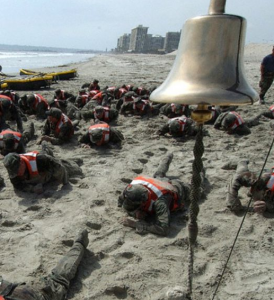 Image via www.freerepublic.com
Image via www.freerepublic.comGranted, if I am brutally honest, there is a part of me that feels like a complete loser that it took FIFTEEN years to become a novelist, but I wouldn’t change how this all happened because this seriously long@$$ journey changed who I was. It shaped this undisciplined, self-centered, unlikable, lazy pile of wanna-be-hack into an actual honest to God pro.
Process
Before I decided on “author” I tried a lot of things. Hell, I wanted to be frigging everything when I grew up.
I loved ballet. I wanted to be a dancer. I loved being on stage. But the bleeding, wrecked, blistered feet? Practice six days a week for four hours a day? Working my a$$ off just to end up in the background waving a rose?
Yeah, not so much.
Then I was going to be a doctor. Loved me some science. Even won a military scholarship to become a doctor. I looked seriously cool in the white jacket and practiced signing Dr. Lamb…and deliberately making it messy because who the hell ever heard of a real doctor with legible handwriting?
All was cool at first, but then I had to start dissecting stuff. I’m not squeamish at all. Hell, my mom is a nurse.
But then I hit a crossroad in Majors Biology with, of all things? A starfish. The super smart Indian kid next to me in lab? His starfish was PERFECT. Like razor lines and every tiny organ laid out and delicately pinned in artful perfection.
My starfish? It looked like it got drunk then called Chuck Liddell a p***y at which point said starfish got pounded into paste…then peed on.
And what I realized was that, while science and medicine “in theory” fascinated me, I just wasn’t in love with the process of getting any good at it. Hell if I did that to a starfish? Yeah. Probably best not to let me near people.
There is a point in all of this and hopefully one that you guys will find helpful. I certainly had aptitude for all the careers that interested me, but I lacked one critical element—love for the process.
Was I willing to do anything for however long it took to get good at it? Really good. Maybe even the best? Nope.
That was, until I decided to become an author. Then everything changed.
The Author’s Life FOR REAL
There is this myth perpetuated by popular culture that talent is vitally important, when in actuality it is highly overrated. People seem to believe that if we are skilled with language then magically we’re capable of creating a work spanning 60K-110K words as easily as breathing.
They seem to think anyone with command of their native tongue can whip out a novel, no problemo. Writing is EASY!
***Note: These were the same people paying us a hundred bucks in college to help them with a four-page essay while they chewed a Xanax *rolls eyes*
No, writing is not easy. It is a craft. We are builders. But instead of getting wood and nails and sheetrock and concrete and crews of people helping us build? We are tasked with creating entire worlds from various combinations of 26 letters…alone.
Yeah, super easy.
It’s a skill and it often has a long and brutal apprenticeship filled with blood, tears, rejection, and too much box wine. We get down on ourselves because friends and family, six months after we start, are certain we’re a failure because we aren’t toppling J.K. Rowling out of her top spots on the best-seller lists.
I know. Been there.
But this is why loving process is critical. When we love the process, we keep at it. We learn all we can. We are willing to tweet and blog and maybe even figure out what the hell is so interesting about Instagram. We learn to ignore the naysayers. We gut through the unfun stuff because love fuels all we do. It has to.
I am not particularly worried about the millions of other “published writers” because many won’t be in it for the long haul. A lot of them are there for the cover, the book in hand and a “signing” and “launch party” and nothing wrong with that. It is their fun. Not all dreams are meant to be life callings.
But, often when these sort of folks discover this isn’t all a giant unicorn hug? That sure we authors can get raving 5 star reviews, but we can also get raving ONE star reviews from lunatics who have nothing better to do than be cruel and crush a writer’s will to live?
They move on *shrugs*.
Or maybe they are pretty good writers, but they don’t want to do the unfun stuff like building a platform (which actually IS a lot of fun if you do it the way I teach it). And these folks will languish in Amazon purgatory because they only loved part of the process, the fun parts.
Some will invest years and never get there and give up because it is taking too long. Heck took me 15 years. I can appreciate that kind of discouragement.
My first book? Well it reminded me of that starfish from Majors Biology (dramatic reenactment of Kristen’s starfish performed by a pumpkin)
 Image via Flickr Creative Commons via Josh McAllister
Image via Flickr Creative Commons via Josh McAllisterBut I kept at it and kept at it and kept at it and now, my starfish looks like this! 
May 15, 2017
Romance & Building a Better Shifter – Part 1: The Nature of the Beast
Today I have a guest post from my lovely, yet ruthless editor Cait Reynolds and she is here to talk about an important topic, particularly for those in the romance genre. Yes, I am an expert at a lot of things, but shifters? I am deferring to Cait. She is hard, brutal, but really excellent in shaping—*wink, wink*—you into a way better author than you imagined you could be.
She’s kind of like that coach who razors your swollen black eye so you can see but you bleed and then she tosses you back into the ring to get your face hit some more. But in the end you win and nail the TKO and so you forgive her.
Eventually.
Anyway, without further ado, take it away Cait!
****
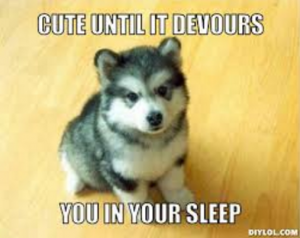 Much like Cait.
Much like Cait.Shifters are hot.
Well, okay, we knew that. Otherwise, there wouldn’t be a multi-million-dollar niche market for them. I mean, who doesn’t want to read and fantasize about a delicious Alpha male with rippling pectorals whose instincts are all about…mating?
Let’s not forget the possessive, protective, wild, and dangerous parts of the shifter male. The shifter hero is a sexy beast. Literally.
But, I’m not here to talk about any of this. In fact, I’m here to come down with the Red Pen of Wrath on the shifter genre. Get ready, because I’m going to be controversial, mean, and utterly, utterly truthful.
Ready?
Many shifters are boring.
Whoa. Yeah, I know. I figured I’d just come right out and go balls-to-the-wall. Before you run to the comments section to testify for the defense, hear me out.
I say many shifters are boring because far too many shifter romances cheap out on two things: world-building and character development. I know that most stories do include some basics about their shifters, but it is rarely enough.
The character development problem shares some traits with the overall issues of character development in romance in general, but there are specifics to shifter characters (and their mates) that are tied to world-building.
Basically, we have reached a point where the genre is saturated in stereotypes and tropes.
Stereotypes are never sexy, and tropes are trite.
How do we get away from it, though? Aren’t there certain things readers will want? Isn’t this taking the idea of shifter romance a little too far away from its purpose as an escapist fantasy?
A fantasy is only as good as how immersive its world is. If our shifters are skimming the surface, using shortcut stereotypes and tired plot gimmicks, then, it’s no wonder we’re struggling to be heard above the noise of 99,000 other ‘meh’ shifter romances on Amazon Kindle Direct Publishing.
The business of shifter romances has always felt like a race-to-market to get the most pages read. With the Sword of KENP hanging over our heads, it’s less about quality and more about putting out 50,000 words every month.
There’s little time and even less incentive to ‘indulge’ in something like spending weeks—and sometimes even months—creating a world that both gives depth to characters and can handle the resulting complexity.
Don’t despair (or write me hate mail just yet). There are things we can do to ‘shift’ our world-building and character development to the next level, and all it takes is some time, patience, and thought.
The Literary Litmus Test of Awfulness
Okay. This is the hard part that is going to make you squirm, but you need to be honest! Answer the following questions with ‘yes’ or ‘no’:
My shifters live in a small, rural town.
My shifters recognize their mates by instinct (scent, sight, gut feeling, etc.).
Once my shifters recognize their mates, that’s it: instant devotion.
My shifters think nothing of relentlessly pursuing their mates for the purpose of seduction and securing lifelong mating.
My shifters mark their mates in some way.
My shifters are dominant Alpha males.
My shifters produce shifter children with their mates.
My shifters run in a pack.
My mates feel safe around their shifters.
My mates might have trouble accepting the fact that shifters exist at first, but they eventually do believe it.
My shifters have enhanced senses even in human form.
My mates can smell their shifters and are attracted to their scent.
Let’s stop there, though I could keep going. You probably answered ‘Yes, but…’ to several of these, indicating you do use the idea but have a variation on it.
I’m here to tell you that isn’t good enough. Variations are like sprinkles on ice cream. We love all the sprinkles, but the colors all taste the same. They just look a little different on the surface.
Taking any of these stereotypes or tropes and working it so it becomes something more than just a pink sprinkle instead of a red sprinkle involves hard work, failure, and some success.
The goal is not to write a shifter romance at the level of Tolstoy. But, who doesn’t want to write a better, more engaging story with hotter characters and a world that grabs the reader’s imagination and doesn’t let go?
Today, we’re going to look at how having a deeper, richer understanding of ‘the nature of the beast’ will help you do just that.
Native American Magic? Yawn.
Seriously?
What a cop-out.
Yes, I am pushing buttons, but, once more, hear me out. Using some generic Native American magic—or, insert generic magical accident/two-sentence explanation here—as the raison d’être for shifters doesn’t just show me that there is sloppy world-building.
It shows me that the author doesn’t really want to do the work in order to write a character that has any depth, complexity or backstory.
We don’t have to spell out every single detail of how our shifters came into existence, but knowing all this will influence our writing at a fundamental level. Our characters might interact with each other and strangers differently.
They might have a radically divergent opinion about something from the heroine who isn’t a shifter. They could face challenges that non-shifters have no clue about, but that could breed resentment/courage/patience/etc. Maybe, they are prejudiced against non-shifters or shifters from other territories.
Every shifter species has an origin story. Think about how important origin stories are to every culture on the planet. From the oral traditions of tribes in Papua New Guinea, to the book of Genesis, even to “On the Origin of Species,” we have a psychological bedrock of these spiritual, mythological, and intellectual origin stories that form the basis of everything we build about our identities and societies.
Imagine you are born a shifter. You are eight years old and ask your father about where shifters come from, and why you are different from other kids. “It was some kind of Native American magic that happened when our ancestors moved here, son,” is an explanation that might suffice for an eight-year-old (though, knowing eight-year-olds, I highly doubt it).
You ask the same question at twelve. Sixteen. Twenty. Twenty-five. Who are you? What are you? Why are you?
If all I got in response was that one sentence, then personally, I’d feel pretty damn lost, isolated, and threatened by the rest of the world, even if I was bonded to my community of fellow-shifters. It’s like showing up for the first day at a new school…every day…for the rest of your life.
Yet, somehow, all of these shifters are totally cool just going around their daily business, completely content to accept the “It was some kind of Native American magic that happened when our ancestors moved here, son” explanation without further questioning or emotional impact.
Now, we’ve come to the point where you might look at me and say (with a degree of asperity I probably richly deserve), “It’s all well and good to say, ‘Develop an origin story,’ but, how do you actually do it?”
An origin story has the following key components:
a creator
a moment of creation
a purpose for creation
a challenge to creation
a lasting consequence of creation
Let’s translate these points into concrete questions you can use to build a creation story:
Who created the shifters? (alchemist, shaman, wizard, demons, etc.)
What happened when the first shifter was created? (Killed the creator? Mated? Captured and tortured for witchcraft?)
Why were the shifters created? (To fight vampires? Protect from demons? Protect a certain geographical location?)
If they were created to fight something, what was it? Does the threat still exist? If it doesn’t, has that changed the nature of the shifters and their culture over time? Is there a similar threat that still exists? If so, how does the shifter react to it, or any danger, for that matter?
Were the shifters first created in Europe or North America? What century? What culture? If they came from North America, you need to do research about the indigenous tribes of the time and their beliefs. If they came from Europe, were they part of Christianity or part of a pagan religion (and, no, you can’t just say druids and shortcut that sh*t)? Are there cultural customs (food, celebrations, ceremonies, beliefs, etc.) that the shifters have retained and practice in human or animal form that are related to their culture of origin?
How do your shifters reproduce? (Mating, biting, alchemically?)
This is just the tip of the iceberg. Once you start building this origin story, you find yourself asking more and more questions. This is a good thing! In fact, this is one of those rare occasions where you should allot plenty of time to go down various rabbit holes and chase esoteric details.
You might not use everything you find, but you never know when that one, little, insignificant fact might become the pivot point for an entire character…and, that is when the fur begins to fly.
Genes and Jeans
I am a math-and-science reject, at least in practical terms. God gave us calculators for a reason. However, I have a layman’s fascination with science, and I try to use it in my writing because it adds so much more to every aspect of a story.
(Why writers should read about science is a whole other blog post of epic soap box-ishness.)
When it comes to shifters, you can’t get away from science. If you do—and most do—you lose out on the opportunity to use one of the most important tools in building an immersive world.
What does science do? It gives our world, our story, and our characters that flavor of reality and tantalizing hint of plausibility that makes readers greedy for more.
So, if we’re going to science! all the things, what does that mean in terms of research for those of us who are scientifically-challenged?
Let’s start with the basics and use wolves as an example.
Most of us have a somewhat basic grasp on wolf biology and behavior because we have waggy-tailed variations running around the house, perking up at the sound of the peanut butter jar opening. We know that wolves live in packs, have an incredible sense of smell, and stamina to travel long distances.
But, did you know that the theory of the ‘Alpha Male’ wolf has been significantly revised? It turns out the study was based on research that used wolves held in captivity and not wolves in the wild. In the wild, wolves live in more dynamic social structures where dominance and submission are driven by complex factors of age, parental relationships, sexual maturity, abundance or scarcity of prey, etc.
A simple Google search on ‘wolf behavior’ brought this article up. This raises interesting questions about having an ‘Alpha Male’ in your shifter pack.
What if there was rivalry for the alpha position? What if it was based on competitive mating opportunities? What if one of the men used his position as owner of the biggest company in town to drive off a competitor for a mate’s attention?
Wolf cubs tend to grow up and leave their natal pack, either joining another pack or forming their own. Does this wolf behavior impact the human side of your shifter’s family relationships? Do the sons of the town tend to move away? If the human side overrides it, what are the tensions it creates?
Does your shifter’s human hair color match his wolf’s fur? What if, instead, your wolf pack bore coloration and markings that had evolved according to their habitat? The density of a wolf’s fur, its color, and its ability to retain heat all vary based on the latitude in which the wolf lives.
Do your shifters have to get haircuts more often in the winter because their wolf fur is thicker? Does human pattern baldness affect your wolves? (I’m serious! These are the kind of questions that keep me up at night!)
Don’t even get me started on geeking out about the various theories on the evolution of the wolf. Why settle for a North American gray wolf when you could have an Italian wolf, the Dinaric-Balkans cluster wolf, the Carpathian wolf, and the Ukranian steppe wolf?
When it comes to the physical attributes of shifting from human to wolf form, you can let your imagination run wild—literally—and make it bone-breakingly painful and violent, or you can make it quick, smooth, and deadly. But, once in wolf form, the rules of biology must come back into play to some degree.
You can make your wolves over-sized and preternaturally strong, but for goodness’ sake, set some limits! Maybe they can run fast, but for how long? Maybe they have keen eyesight, but only at night? Maybe they are capable of breaking down doors and crashing through windows, but exactly how resistant is their skin to tearing?
Creating an all-powerful shifter wolf is the equivalent of a Mary Sue who never leaks snot when she cries. Setting limits based on real biology and behavior gives you more scope for challenge, conflict, and character development.
Sexy Taylor the wolf shifter is blindingly fast, but he can only run at that speed for half-a-mile. Tessie, who-will-be-his-mate-when-she-surrenders-to-his-charisma-eventually, is a mile away. Will he get to her in time? Can he push past his natural endurance limits? What happens if he doesn’t?
Sexy Taylor the wolf shifter also looks super hot in blue jeans. However, we’re just going to leave the whole clothing debate for another day. Suffice it to say that if your clothes shift with you, there’s definitely some extra hocus-pocus going on at a molecular level.
Though, it does bring to mind a plot bunny of a wolf shifter community that discourages visitors by labeling itself a nudist colony, since shifting generally involves nudity…
Shifters are the ultimate bad boys. They are the—sorry, I have to do this—party animals of the romance genre. They are unabashedly sexual and offer a dash of danger. Winning the heart of a shifter falls somewhere between winning the lottery and getting a puppy for Christmas. We read shifter romances for escapist fun and to indulge in dreams more intense than what we might dare in real life.
The point of all of this is not to dampen your enthusiasm for writing shifter romances or to bash the genre needlessly, but rather to bash the genre where needed in order help writers take their stories to the next level.
I want to lose myself in a world that feels so real, I forget that it isn’t. I don’t want to waste my time reading another shifter story that feels like someone did a ‘ctrl-H-replace-all’ for the names and slapped a different cover on the same damn story.
Writing is work. Writing well is hard work. Writing well about a world that is rich, complex, and dynamic? That’s hellishly hard work…
But, so, so worth it to the reader.
***
Thank you Cait! And make sure to check out her class on Shifter Romance listed below!
I LOVE hearing from you guys!
****The site is new, and I am sorry you have to enter your information all over again to comment, but I am still working out the kinks. Also your comment won’t appear until I approve it, so don’t fret if it doesn’t appear right away.
Talk to me!
And to prove it and show my love, for the month of MAY, everyone who leaves a comment I will put your name in a hat. If you comment and link back to my blog on your blog, you get your name in the hat twice. What do you win? The unvarnished truth from yours truly.
I will pick a winner once a month and it will be a critique of the first 20 pages of your novel, or your query letter, or your synopsis (5 pages or less).
***Will announce April’s winner next post. I was supposed to do it this post but I lied. I am a writer, it is what we do. I will get to it! 
May 9, 2017
Branding for Authors—When Do We NEED Marketing & Advertising?
Okay so last time we talked about experts and why we need to be careful who we are listening to. Sure some “experts” are really predators. Others mean well, they just aren’t a good fit for what an author needs.
Here’s a simple truth that a lot of writers miss and this is so fundamental. Marketing and advertising are NOT brand and platform. These are not all synonyms and interchangeable.
Brand/Platform and Marketing/Advertising are distinctively different activities and when writers don’t understand this? They have panic attacks, get overwhelmed and start requesting information on-line for dental hygienist schools while drinking straight from the spout on the boxed wine.
You can do this. Calm down. Breathe.
My expertise is in helping you guys build the brand and the platform. I am NOT an expert on advertising and marketing. I have no interest in being one either. But what can often happen is that writers believe they need marketing and advertising experts when in fact, they are not yet ready for that.
Brand and Platform
Brands can be built any number of ways. In the olden days, brands and platforms for novelists could only be built ONE way. Books. Good books. And the more the better. Since there was no regular interface with an author, the singular interaction one could have with an author was through the stories he/she wrote.
This is STILL the strongest way to create a brand and platform and the reason is this. It takes an average of 12-15 hours of undivided attention to complete a novel. This is a LOT of intimate time with a person. I can’t remember the last time I spent 12-15 hours of undivided attention with my husband or child. This immersion creates a profound intimacy in regards to the feelings a reader has for the author.
One of the reasons that the mega authors don’t have to work terribly hard at social media is they already put in their time through lots and lots of BOOKS. I am finishing the unabridged version of Stephen King’s “It.” This means once I finish I will have spent (just with that one book) FOURTY-FIVE HOURS of time with King (and this is not the first King book I have read).
Thus the successful authors of the pre-digital age came onto the social media scene with an established brand and platform.
And all social media does is help keep that thriving. Ads and marketing also do very well for these authors because they are already household names. One does not have to be an avid reader or member of a book club to recognize the name J.K. Rowling. Walk through any airport and all you see is James Patterson books.
For the author emerging onto the digital scene who cannot already put NYTBSA in front of her name, who does not have an extensive backlist, there is some work to be done regarding building a brand and platform since you don’t have one. This is where I come in.
Other than books, how can you establish a brand (what people think when they see your name) and a platform (people who will eventually be interested in buying books). My training is to cultivate that following (those who know you, your voice, your books) and those relationships (those who care) and you can get all of that in one book, Rise of the Machines. I also offer training to make your books (product) as strong as possible thereby enhancing your BRAND.
BRAND—> WHAT IS IT?
PLATFORM—> THOSE WHO KNOW AND CARE WHAT IT IS
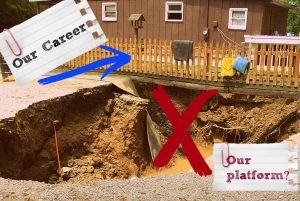 Original image via Wikimedia Commons, courtesy of FEMA
Original image via Wikimedia Commons, courtesy of FEMAThe problem with some “experts” we mentioned last time is they want to skip steps. We can’t blast out newsletters to people who don’t know us let alone care to hear from us. We need to do some relationship building and establish trust and rapport.
This is not something that can be outsourced or automated. We need to do the work. And any expert who tries to skip this fundamental step of brand and platform-building? I’d think twice before handing over money.
Regular companies offering services or products (restaurants, bars, computer services, vegan body wash) can do this, but that is because they have the big budgets to saturate with ads and marketing. Yet, I will point out that most of these ventures fail. When we rely on ad saturation it is expensive and risky.
But we (authors) obviously don’t stop with just the brand (books/blogs) and platform, and this is where experts REALLY come in handy.
If brand is WHAT IS IT? And platform is WHO CARES? Then marketing and advertising are simply magnifying these two things that already exist.
Marketing & Advertising
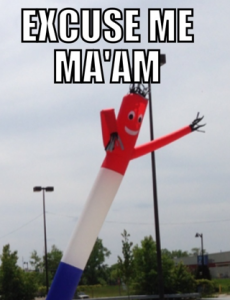 AHHHHHHH!
AHHHHHHH!As I just mentioned, marketing and advertising can only enhance what already exists. Ads work for Starbucks because there is one on every corner and they have a known reputation.
Marketing works for Kia because people need cars and see Kias on the road all the time. We know what they are. We KNOW what a Starbucks is. We know what Levis are. We know what all these “things for sale” are and probably have formed an opinion or impression…which is why it makes sense to use advertising and marketing.
As writers, will eventually need marketing and advertising and I am here to deliver a simple yet possibly uncomfortable truth.
Money and time are in a reciprocal relationship. The more time we spend cultivating the brand and the platform, the less money we will have to fork out on marketing and advertising. The less time we spend cultivating the brand and platform the more money we will have to fork out in marketing and advertising.
See, when we try to make marketing and advertising take the place of the platform and brand? That can get REALLY expensive.
We can feel free to write the book on our own, never be on social media then hire a marketing team, but the sheer volume of ad saturation it will take to garner attention? That’s gonna cost big.
I love marketing and advertising people, but here’s the deal, they are marketers not magicians. The more we do our part (write books, build a social media following, blog), the more they have to work with. The more people already KNOW us. We get a lot more bang for our buck.
A lot of writers are paying lots of money for these large email lists to blast out newsletters to people who don’t know them and who never signed up to hear from them in the first place.
This has the same ROI as those folks who blast out messages that we have an inheritance in Ghana somewhere if only we will wire five grand via Western Union. Sure, some people DO bite, but you have to send a LOT of emails to get any return.
What then happens is the writer blows through a lot of money needlessly for no real results.
Very often I hear disenchanted authors who gripe the their book isn’t selling because they don’t have the mega marketing budgets of the NY heavy hitters. Here’s the deal though. NYC spends that kind of cash on Stephen King, and George R.R. Martin, and James Patterson because most folks in the Western world recognize the brand.
One doesn’t have to be an avid reader to know Stephen King writes the scary stuff. These authors have a brand and that makes the ads have a good ROI. To do this for an unknown author? Better to pile cash in the floor and set it on fire (my POV).
Thus, when we are looking for experts we will fare better if we appreciate that brand/platform is separate from ads/marketing. There are some really brilliant book marketing people out there and even dedicated experts like Rachel Thompson who teach writers how to do a lot of this for themselves.
She’s also a great person to go to to find those folks with the marketing mojo you need for your book and I strongly recommend checking out her blog Bad Redhead Media.
In the end, remember, experts are great when we find the right ones. The cool part about the digital age is we can look around, make friends and get opinions and referrals from those we trust. And yes, “goofing off” on Facebook or Instagram is platform building. You are forging relationships. Write the books, make the connections and then, once you are ready? These marketing mavens will be happy to dazzle you!
What are your thoughts? Do you have any pressing questions?
I LOVE hearing from you guys!
****The site is new, and I am sorry you have to enter your information all over again to comment, but I am still working out the kinks. Also your comment won’t appear until I approve it, so don’t fret if it doesn’t appear right away.
Talk to me!
And to prove it and show my love, for the month of MAY, everyone who leaves a comment I will put your name in a hat. If you comment and link back to my blog on your blog, you get your name in the hat twice. What do you win? The unvarnished truth from yours truly.
I will pick a winner once a month and it will be a critique of the first 20 pages of your novel, or your query letter, or your synopsis (5 pages or less).
***Will announce April’s winner next post.
SIGN UP NOW FOR UPCOMING CLASSES!!!
Remember that ALL CLASSES come with a FREE RECORDING so you can listen over and over. So even if you can’t make it in person? No excuses! All you need is an internet connection!
BUNDLE DEALS!!!
Book Bootcamp $99 ($130 VALUE)
Book Bootcamp GOLD $269 ($430 VALUE) This includes the log-line class, antagonist class, the character class AND a three-hour time slot working personally with ME. We will either plot your idea or, if your novel isn’t working? Fix it! Appointments are scheduled by email. Consults done by phone or in virtual classroom.
Individual Classes with MOI!!!
Pitch Perfect—How to Write a Query Letter and Synopsis that SELLS! $45 May 25th, 2017
Bullies & Baddies—Understanding the Antagonist $50/$200 (Gold) May11th, 2017
The Art of Character $45 May 18th, 2017
NEW CLASSES/INSTRUCTORS!!!
Growing an Organic Platform on Facebook $40 May 6th, 2017 Lisa Hall-Wilson is BACK! She is an expert on Facebook so check out her class!
Method Acting for Writers: How to Write in Deep POV $85 for this TWO WEEK intensive workshop with editor and writing instructor Lisa Hall Wilson.
Shift Your Shifter Romance into HIGH Gear $35 May 19th with powerhouse editor Cait Reynolds.
Researching for Historical Romance (How to NOT Lost 6 Hours of Your Life on Pinterest) $35 May 20th
For those who need help building a platform and keeping it SIMPLE, pick up a copy of my latest social media/branding book Rise of the Machines—Human Authors in a Digital World on AMAZON, iBooks, or Nook.
May 2, 2017
Social Media for Authors—Beware of Experts
Recently I traveled to Indiana to teach blogging to the IRWA. OMG I love speaking to RWA groups! Romance writers are my absolute favorite people and it’s always such a joy to teach for them. The downside always is I have to go home and apparently “keeping” the attendees is called “kidnapping” and is a “federal offense.”
The FBI are such party poopers *rolls eyes*
Anyway, one challenge I face whenever I teach social media and branding and blogging is I have to undo a lot of really bad and frankly WRONG teaching. This presents some challenges for me in that often, many writers attend my lectures out of obligation. They are there because they are biting a bullet.
*writer slogs in with a half-written suicide note*
And frankly, the way a lot of folks teach social media? I’d want to toss myself off something high as well.
What I want to do today is to help you discern a real expert you should listen to (because there are plenty other than me) versus someone to either avoid like the plague or to at least use some more discernment before taking what the “expert” says as gospel. Often when we go to conferences and listen to lectures, we are trusting the expert blindly but these days we need to be educated consumers. If we aren’t? I can cost us BIG.
So my goal is to help you guys go into the conference season and onto the interwebs better informed.
Without further ado, beware of…
Outright Predators
Some “experts” frankly, are not. I hate saying this, but it is the truth.The digital age of publishing reminds me of the Gold Rush of the 1800s. There were plenty of folks who popped up on the scene to take advantage of an immigrant with a dream. They sold plots of land they knew had no gold. They sold maps and tools, and services knowing all along that the “miner” had about as much chance of hitting gold as flying to the moon.
We need to be vigilant in this new age because these people do exist, though these folks tend to pop up on-line (not at a conference). They are happy to sell some new fad or gimmick or plan and in truth? It’s snake oil. Thus if you see a shortcut that seems too good to be true? Likely is.
Feel free to run it by me if you are unsure, but I have been doing this social media thing since MySpace was big and I’ve never seen a gimmick that lasted long. Often there will be some trick, a few writers make a LOT of money, the “expert” then picks up this trick and sells it and the fact he/she can cite real success stories adds validity to what is being sold.
But here’s the deal. If this “trick” is being packaged? Odds are it is obsolete already. Someone is trying to make a buck off a ship that already sailed.
And don’t get me wrong, gimmicks do work. They just don’t work long term. If there is some magic way of doing algorithms so we sell a gazillion books on-line? By the time we buy the step-by-step plan then apply it? Amazon, Facebook, or Google’s IT people likely have already corrected the glitch that gave the mass advantage.
The big guys don’t like loopholes or shortcuts they aren’t charging us for.
Remember that 
April 27, 2017
Your Story Has HIT a WALL—What Now?
If you’ve been writing fiction any length of time, you’ve probably experienced getting stuck. There are authors who firmly believe there is no such thing as writer’s block, that it is lack of discipline and I agree that can often be the case.
Often…but not always.
I feel our subconscious is an excellent writing partner if we can learn to listen and stay in tune with it. Frequently, when something is very wrong, our subconscious will simply slam the breaks and not let us move forward because it is warning us there is something that needs to be fixed.
But, if we are unaware of the role the subconscious can play in story creation, we don’t recognize what is going on and do one of three things: 1) Shelve the project 2) Start a new project 3) Keep writing ourselves deeper into that hole by sheer force of will.
Thus, today I want to give you some tricks that might help you when you find yourself stuck.
Change POV
Different stories require different POVs. And I would love to give you some step-by-step explanation but I don’t have one. They just DO. Take a plot problem and seriously, POV changes the whole thing. Lord of the Rings written in first-person present-tense would be a very different ride.
Often we get a story idea and we just take off writing in the POV we find most comfortable…but it simply doesn’t work with the story. I had this happen with my debut novel The Devil’s Dance. I started writing in third limited and it was just….meh. I had never written fiction in first-person so to get unstuck? I changed POV and? It worked!
And the thing is, maybe you don’t stay in that POV. Sometimes just taking a scene and shifting POV is enough to nudge the subconscious over the hump.
Change Perspective
Also, if a scene is bugging you, literally change POV. Not the third person to first-person way I just mentioned. But switch heads. Tell what is happening from another character’s perspective. Again, probably not something you will keep because not every character is a POV character, but this can help get the mojo flowing again.
Recast
Sorry I am mentioning my debut novel a lot, but it was a hell of a learning curve. Again, this happened with The Devil’s Dance. I had my plot idea, which was pretty cool *gets cramp patting self on back*. I knew I wanted a small town in Texas and people dying and it had to do with the town’s newfound prosperity and Mexican drug cartels. My imaginary town, Bisby, was a wide space in the road that suddenly went BOOM. Instead of trailer parks, there were wine bars and million-dollar homes.
Why? How?
But originally I cast a resident of this small town and she was an Army veteran home from Afghanistan who was working at her uncle’s gun range. Nothing per se wrong with it, but she just kept falling flat. She was a former soldier and all badass and…boring as hell. So, I kept the plot idea and went the complete opposite direction.
Instead of some female action hero, I cast a protagonist who would be completely out of her depth. She was a disgraced software salesperson who’d done everything to escape Bisby and the trailer park where she grew up…who was then forced to go home to her crazy-as-a-bag-of-cats family and becomes the only one who can save the town she’d spent most of her life running from. I patterned her character off Elle Woods from Legally Blonde.
And it ROCKED! The story flowed because the idea just worked better with an unlikely hero.
Skip Scenes
Again, our subconscious is our friend so let it work its magic. Recently I got onto my coauthor Cait about locking in her teeth and not letting go. We are writing a Western Horror and she’d had this scene she had been futzing with for weeks trying to get it perfect.
So first of all, perfect is the enemy of the good. On a first draft there is NO sense in perfecting anything because there is almost some hidden law that states the scenes most likely to be cut or completely rewritten are all the ones we spent far too much time fiddling with.
Sometimes, it helps to just write (in caps) what happens then move on.
Cait was tasked with killing a goat and apparently that was way tougher than either of us imagined it would be when plotting this goat’s demise. In our defense it is no average goat. It is a goat risen from the dead with a taste for human instead of petticoats. Now Cait messed with it and messed with it and finally got it to work but in fairness, if it had been my scene?
I would have written as much as I could then put AND THEY KILL GOAT IN SUPER SPECTACULAR WAY and then moved on and let my subconscious chew on it.
As you are writing, trust me, your subconscious is working on how to kill that goat D-E-A-D and often will come up with something FAR cooler than if we gut through it.
So my writing advice?
Sometimes the best way to kill a goat is to jump the goat.
Write Your Ending
A lot of writers cringe when we instructors mention doing this. You may be yelling, But I am not a plotter! I don’t outline! I am a pantser! And I will say, that is still no excuse. All stories must have a core story problem in need of being resolved. We should be able to say what our book is about in ONE sentence. Especially the pantsers. If all you know is the core problem in need of being solved? That is enough. And if you don’t know this, then prepare to spend months or years fixing a mess (if it can even be fixed).
As complex a story as Lord of the Rings is, I can fit it into ONE sentence.
A naive and innocent race of homebodies must traverse a dangerous realm to toss an evil ring in a particular volcano before a power-hungry necromancer takes over and destroys all they love.
How does this story end?
With a VOLCANO.
Say Tolkein got stuck somewhere in Rivendell. He could have theoretically skipped ahead to Mt. Doom and wrote that and then what is left are two defined points and a missing middle. It is often FAR easier to connect two defined points than to start from point A and keep going into infinity with no idea where it will end.
And again, you don’t have to keep that particular ending. It can be rewritten, but again, it gives the subconscious something to work with.
Ask yourself, How do I know when my story is over? And that is your ending. If you want help smooshing your tome into a single-sentence, I have a class coming up on that and I will help you do it and show you how you can do it yourself in the future (Your Story in a Sentence—Crafting Your Log-line).
What are your thoughts? And make sure to check out the upcoming classes below! Especially the Book Bootcamp! The bootcamp has all the instruction you need to write your novel AND to learn to plot and write QUICKLY. They key to making money in this business (even in legacy) is lots of titles.
I LOVE hearing from you guys!
****The site is new, and I am sorry you have to enter your information all over again to comment, but I am still working out the kinks. Also your comment won’t appear until I approve it, so don’t fret if it doesn’t appear right away.
Talk to me!
And to prove it and show my love, for the month of APRIL, everyone who leaves a comment I will put your name in a hat. If you comment and link back to my blog on your blog, you get your name in the hat twice. What do you win? The unvarnished truth from yours truly.
I will pick a winner once a month and it will be a critique of the first 20 pages of your novel, or your query letter, or your synopsis (5 pages or less).
SIGN UP NOW FOR UPCOMING CLASSES!!!
Remember that ALL CLASSES come with a FREE RECORDING so you can listen over and over. So even if you can’t make it in person? No excuses! All you need is an internet connection!
Be a Better Hooker (How to Write a Compelling Newsletter)
April 29th $45
In this class, learn how to compose a newsletter that is entertaining and compelling—and all without stealing most of your writing time. Learn how to get your hooks in your readers and keep them until the end.
With a mailing list of over 15K subscribers, mystery/thriller author Jack Patterson will share some of his tips that will spice up your newsletter and get your subscribers opening it up every time you send one out.
BUNDLE DEALS!!!
Book Bootcamp $99 ($130 VALUE)
Book Bootcamp GOLD $269 ($430 VALUE) This includes the log-line class, antagonist class, the character class AND a three-hour time slot working personally with ME. We will either plot your idea or, if your novel isn’t working? Fix it! Appointments are scheduled by email. Consults done by phone or in virtual classroom.
Individual Classes with MOI!!!
Pitch Perfect—How to Write a Query Letter and Synopsis that SELLS! $45 May 25th, 2017
Blogging for Authors $50 April 27th, 2017
Your Story in a Sentence—Crafting Your Log-line $35 May 4th, 2017
Bullies & Baddies—Understanding the Antagonist $50/$200 (Gold) May11th, 2017
The Art of Character $45 May 18th, 2017
NEW CLASSES/INSTRUCTORS!!!
Growing an Organic Platform on Facebook $40 May 6th, 2017 Lisa Hall-Wilson is BACK! She is an expert on Facebook so check out her class!
Method Acting for Writers: How to Write in Deep POV $85 for this TWO WEEK intensive workshop with editor and writing instructor Lisa Hall Wilson.
Shift Your Shifter Romance into HIGH Gear $35 May 19th with powerhouse editor Cait Reynolds.
Researching for Historical Romance (How to NOT Lost 6 Hours of Your Life on Pinterest) $35 May 20th
For those who need help building a platform and keeping it SIMPLE, pick up a copy of my latest social media/branding book Rise of the Machines—Human Authors in a Digital World on AMAZON, iBooks, or Nook.
April 25, 2017
Book Spam is for Losers—Don’t Advertise, PADvertise!
Any of you who regularly follow my blog know that I am totally out of my mind a bit eccentric. The seed for this brilliant idea was actually planted a couple years ago when I was speaking in Idaho. I have a doctor’s appointment this morning, so I’m taking this opportunity to rerun my all-time favorite post.
Anyway, where was I? Oh yes. Idaho. After lunch, I had to dash to the Ladies’ Room. As I closed the door to the stall, I noticed all the advertising on the back of the bathroom door. This cluttered wall of ads made me think about all the authors spamming non-stop about their books on Facebook and Twitter.
Writers were becoming worse than an Amway rep crossed with a Jehovah’s Witness. I mean, could the author book promotion get any more invasive?
Wait…
Maybe it could *evil laugh*.
I’ve blogged so many times about the dangers of automation and how spamming people is counterproductive. I’ve talked until I am blue about how advertising our books has a terrible ROI (return on investment) and how most people don’t pay attention to it. Ah, but then it hit me. The main reason spam doesn’t work is because people ignore it and no longer “see” it, but what would they see?
Panty Prose—Not Advertising, PADvertising (TM)
We all know that roughly 85% of readers are women, and what do women need? Panty liners. YES, but what do they need more than springtime fresh girl parts? More FREE! books. Indie authors shouldn’t spam about their latest book release or free title on KDP select.
Why?
Because it’s rude? No! Because it is obnoxious? Not quite. Because it smacks of desperation? Not at all. The reason authors shouldn’t spam about their books is because spam is for amateurs.
The real writer of the Digital Age doesn’t settle on blasting out non-stop self-promotional tweets. That is SO 2011. The REAL writer of the Digital Age realizes a captive audience is a a buying audience.
Catch readers with their pants down with Panty Prose.
Panty Prose is perfect for the indie author. Most readers are female and even females need something to read in the bathroom. We at Panty Prose (a new imaginary division of W.A.N.A. International) have teamed up with Always against their will to offer your readers the best deals right in their pants.
Panty Prose not only offers you PADvertising to a guaranteed clientele, but we have all kinds of layouts to suit your PADvertising needs. Technology is your friend with Panty Prose. Put your book where it counts…
At Panty Prose, we even make it affordable for you to place your face in your reader’s pants…
As you can see, Panty Prose is inserting your ads into a virgin market begging to be tapped.
Why are all the romance authors hyperventilating?
Anyway, while others might see a protective strip that gets tossed in the bin, we see an unused space to PADvertise your latest novel AND save trees! Instead of throwing away that paper strip, we can print of lines from your book so fans can collect them ALL…
 Make Your Readers Want MORE….
Make Your Readers Want MORE….Make Your Readers Your Fan for ALWAYS….
Panty Prose is dedicated to keeping women fresh while selling your books. Attending a writing conference? Well, there is a bathroom and everyone knows that even agents can’t hold it forever. They will have to go potty sometime. Why not help them out? Keep them springtime fresh and give them your query. Elevator pitches are for losers, when you can use the Panty Pitch. The Panty Pitch comes in three fragrances, Sonnet’s Eve, New Office Supplies, and Cinnabon.
Panty Pitch:
 Save agents time and keep them fresh!
Save agents time and keep them fresh!Panty Prose for the Published Professional is a smart, savvy way to stand out from all the competition that still is relying on scheduled tweets and auto-DMs. Make an impression that will last for Always.
Okay, okay I’ll stop. You know you’ve reached a whole new level of weird when you spend an entire day Photoshopping your face onto panty liners. But you know I am on to something! W.A.N.A. is dedicated to giving you the evil genius you need for success. Aside from Panty Prose, what other “free spaces” could we exploit for book advertising? You know, to catch those who missed our 23 tweeted links, 6 auto DMs and five form letters.
So what do you think? Has the book spam gotten completely out of control? Are there other ways you can think of that are utterly invasive creative ways to market our books (Keep it PG, Please :D)?
What are your thoughts? And make sure to check out the upcoming classes below! Especially the Book Bootcamp!
I LOVE hearing from you guys!
****The site is new, and I am sorry you have to enter your information all over again to comment, but I am still working out the kinks. Also your comment won’t appear until I approve it, so don’t fret if it doesn’t appear right away.
Also know I love suggestions! After almost 1,100 blog posts? I dig inspiration. So what would you like me to blog about?
Talk to me!
And to prove it and show my love, for the month of APRIL, everyone who leaves a comment I will put your name in a hat. If you comment and link back to my blog on your blog, you get your name in the hat twice. What do you win? The unvarnished truth from yours truly.
I will pick a winner once a month and it will be a critique of the first 20 pages of your novel, or your query letter, or your synopsis (5 pages or less).
SIGN UP NOW FOR UPCOMING CLASSES!!!
Remember that ALL CLASSES come with a FREE RECORDING so you can listen over and over. So even if you can’t make it in person? No excuses! All you need is an internet connection!
Be a Better Hooker (How to Write a Compelling Newsletter)
April 29th $45
In this class, learn how to compose a newsletter that is entertaining and compelling—and all without stealing most of your writing time. Learn how to get your hooks in your readers and keep them until the end.
With a mailing list of over 15K subscribers, mystery/thriller author Jack Patterson will share some of his tips that will spice up your newsletter and get your subscribers opening it up every time you send one out.
BUNDLE DEALS!!!
Book Bootcamp $99 ($130 VALUE)
Book Bootcamp GOLD $269 ($430 VALUE) This includes the log-line class, antagonist class, the character class AND a three-hour time slot working personally with ME. We will either plot your idea or, if your novel isn’t working? Fix it! Appointments are scheduled by email. Consults done by phone or in virtual classroom.
Individual Classes with MOI!!!
Pitch Perfect—How to Write a Query Letter and Synopsis that SELLS! $45 May 25th, 2017
Blogging for Authors $50 April 27th, 2017
Your Story in a Sentence—Crafting Your Log-line $35 May 4th, 2017
Bullies & Baddies—Understanding the Antagonist $50/$200 (Gold) May11th, 2017
The Art of Character $45 May 18th, 2017
NEW CLASSES/INSTRUCTORS!!!
Growing an Organic Platform on Facebook $40 May 6th, 2017 Lisa Hall-Wilson is BACK! She is an expert on Facebook so check out her class!
Method Acting for Writers: How to Write in Deep POV $85 for this TWO WEEK intensive workshop with editor and writing instructor Lisa Hall Wilson.
Shift Your Shifter Romance into HIGH Gear $35 May 19th with powerhouse editor Cait Reynolds.
Researching for Historical Romance (How to NOT Lost 6 Hours of Your Life on Pinterest) $35 May 20th
For those who need help building a platform and keeping it SIMPLE, pick up a copy of my latest social media/branding book Rise of the Machines—Human Authors in a Digital World on AMAZON, iBooks, or Nook.
April 20, 2017
Feeling Invisible on Facebook? How’s Your Organic Reach?
 Finding it hard to stand out from the crowd?
Finding it hard to stand out from the crowd?Years ago, when I decided to branch out and teach virtual classes regarding craft and social media, I knew I needed to live by my own mantra—We Are Not Alone. Sure I could kill myself learning every platform and maybe even do a passable job, but I am way too Type A for that. You guys deserved the best. So I reached out to those around me who were far better than I was, the experts I looked to on various subjects.
Sure, I do a good job on Facebook and am an expert on the basics, but if you REALLY want to up your game? Really want to know how to get the most out of Facebook, particularly the fan page? There is no one I could recommend more than journalist, columnist, speaker Lisa Hall-Wilson. She taught me what I know and I have a lot more to learn so believe you me, I am taking her class.
Lisa is here to talk about a subject we all face—being invisible. It does no good to be on Facebook or create content if we don’t know how to play the game. And trust me, a lot of it is a game. What is the best content? How do we use it? Grow it? Maximize it? How can we get a fantastic ROI off Facebook without living there?
Well, Lisa is going to talk about that today, so this is me shutting up now…
Take it away, Lisa!
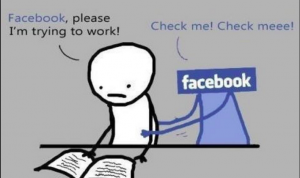 Meme via nuevosmedios.mx
Meme via nuevosmedios.mxI haven’t been around for a while. Life. Stuff. *shrug* Kristen and I have been chatting for a while about me teaching again, so I’m back! I miss W.A.N.A, and Facebook has changed SO MUCH since I last taught a class. How are you feeling about Facebook?
Finding it hard to stand out from the crowd?
Yeah, there’s a lot of people using Facebook to sell something. They’re all clamoring for attention and Facebook has to keep changing the rules to stymie the spammers and cheats. It’s harder than ever to get noticed. Hits you right in the feels. I get it. So lemme ask you…
How’s Your Organic Reach?
Is that too personal? Listen, I don’t teach people how to use ads on Facebook (though I run ads myself), because there’s lots of other people out there already doing that. Ads are awesome, and Facebook has one of the most targeted ad systems on the interwebs. There’s great bang for your buck, if you know your audience. I teach writers how to reach readers organically using Facebook.
Here’s the problem with writers and Facebook ads.
Ads only amplify what you’re already doing.
If you can’t get people to click through to your blog, comment/share/react to your content organically, your ads are unlikely to do well.
Ads only amplify what you’re already doing!
Facebook is S L O W
I know. It can be disheartening and frustrating. It’s also easy to get sucked in and lose hours of time you should have spent writing. Be strong! However, if you can get 5% or even 10% of your Facebook friends/followers to respond to a post organically, you’re onto something.
If you follow the W.A.N.A. way of building platform organically, the changes and tweaks Facebook makes to the way things look or the algorithm, won’t affect you. You’ll have the kind of platform that will grow your readership. With that skill in hand, when you can afford to pay for ads, you’ll already know what your audience is interested in, what they’ll respond to, and what value they’re looking to you to provide.
2 Reasons To Try Video
Facebook has tweaked the algorithm to give extra organic boost to videos. So, either a Facebook Live video (where you live stream from your phone to your Facebook Page, Profile, or to a Group) or you upload a video created elsewhere to Facebook. (Videos shared from other sites are considered links and won’t get the extra organic boost) 135% more organic reach than photos according to Social Media Today.
Facebook Live videos are watched 3.5x more than non-live video. This “serves to illustrate the importance of authentic, ‘off-the-cuff,’ and in-the-moment content with audiences worldwide.” (source here)
Now, I know that since Facebook rolled out the auto-play feature on videos, view stats can be deceiving. The salient point here is that Facebook really wants people to publish videos and they will reward you by showing your content to more people than usual organically.
Video is simply another storytelling platform. Don’t get freaked out. So, what should you post? I spent a couple of hours with Facebook and Google and checked out the video offerings from the biggest trad and indie published authors.
What Seems To Be Working?
Facebook Live videos have the most views (relative to the audience size on the Page). Fans seem to really love these videos. I wouldn’t say there’s an optimal length (based on my unscientific collection of data), but having something of value to say is important.
Most of the authors with the highest views were announcing a new book, meeting with someone their audience found interesting, offering value (non-fiction authors answering questions or giving advice), or glimpses of whatever locale the author found themselves in.
Brene Brown has this fun video of a full-out marching band she ran into at an event she was speaking at. Nora Roberts shared a live video of a giant ad her publisher created with her book cover projected onto the front of a building in New York.
Laurel K Hamilton posted a video of her opening a shipment of hard cover books of her newest release that had just arrived at her home “Book number 25” she says.
Marie Force shared a video with her behind-the-scenes team. Hugh Howey… He continues to tease readers with videos of dolphins swimming around his boat, jumping off cliffs (nearly naked), as he cruises the world writing remotely… We’re not going to mention Hugh Howey again. Agreed? His content can’t be duplicated.
None of those videos were professionally done. They were captured on a phone and posted without any editing. They were personal, behind-the-scenes, glimpses into the writer or the writer’s life. Fans love that. Instead of taking a photo, take a 16second video of that crazy rainstorm that held up your plane, those ruins you’re visiting for research, or an author you ran into at a conference.
James Patterson’s publisher created a splashy series of videos for his newest release. I have a feeling there was a lot of money spent on those videos. The video that got the most views? James Patterson spends 16 seconds telling readers why they should read his new book and the cover flashes on the screen at the very end. It was short, simple, engaging, intriguing, and well received.
Did it directly translate into book sales? I can’t say. But at only 16 seconds long, combined with Facebook’s autoplay feature, chances are good that a lot of people saw that video straight through and came away knowing the title of his newest book.
The plain fact is that all content is not going to be equal on Facebook, but the key is, the more we learn, the more we know, the easier it is for us to keep pace with and take advantage of this powerful platform. Facebook is slow, I already mentioned that. It has a lot of potential energy, sort of like a boulder sitting on the edge of a cliff. But we rock that boulder enough ways the same direction and over time? Once it gets rolling? That sucker is tough to slow down.
I have two classes coming up in May and I’d love to have you join me.
Growing An Organic Platform On Facebook – May 6th
How To Write In Deep POV: Method Acting For Writers – May 6th
Take Your Writing To The Next Level by learning the advanced writing technique of Deep POV guaranteed to pull your readers into the story (and it works with any genre), grab them by the throat and not let go! This deeply personal emotive style of writing resonates with contemporary readers, if you’ve got the guts to “go there” with your characters. This is a difficult skill set to master, but it’ll change how you write forever – for the better.
THANK YOU, LISA! I’ve known Lisa since forever. She was one of the very first W.A.N.A.s and she is an excellent instructor. I hope you enjoyed this and remember that comments for guests count double in the contest.
What are your thoughts? Questions for Lisa?
I LOVE hearing from you guys!
****The site is new, and I am sorry you have to enter your information all over again to comment, but I am still working out the kinks. Also your comment won’t appear until I approve it, so don’t fret if it doesn’t appear right away.
Also know I love suggestions! After almost 1,100 blog posts? I dig inspiration. So what would you like me to blog about?
Talk to me!
And to prove it and show my love, for the month of APRIL, everyone who leaves a comment I will put your name in a hat. If you comment and link back to my blog on your blog, you get your name in the hat twice. What do you win? The unvarnished truth from yours truly.
I will pick a winner once a month and it will be a critique of the first 20 pages of your novel, or your query letter, or your synopsis (5 pages or less).
SIGN UP NOW FOR UPCOMING CLASSES!!!
Remember that ALL CLASSES come with a FREE RECORDING so you can listen over and over. So even if you can’t make it in person? No excuses! All you need is an internet connection!
Be a Better Hooker (How to Write a Compelling Newsletter)
April 29th $45
In this class, learn how to compose a newsletter that is entertaining and compelling—and all without stealing most of your writing time. Learn how to get your hooks in your readers and keep them until the end.
With a mailing list of over 15K subscribers, mystery/thriller author Jack Patterson will share some of his tips that will spice up your newsletter and get your subscribers opening it up every time you send one out.
BUNDLE DEALS!!!
Book Bootcamp $99 ($130 VALUE)
Book Bootcamp GOLD $269 ($430 VALUE) This includes the log-line class, antagonist class, the character class AND a three-hour time slot working personally with ME. We will either plot your idea or, if your novel isn’t working? Fix it! Appointments are scheduled by email. Consults done by phone or in virtual classroom.
Individual Classes with MOI!!!
Pitch Perfect—How to Write a Query Letter and Synopsis that SELLS! $45 May 25th, 2017
Blogging for Authors $50 April 27th, 2017
Your Story in a Sentence—Crafting Your Log-line $35 May 4th, 2017
Bullies & Baddies—Understanding the Antagonist $50/$200 (Gold) May11th, 2017
The Art of Character $45 May 18th, 2017
NEW CLASSES/INSTRUCTORS!!!
Growing an Organic Platform on Facebook $40 May 6th, 2017 Lisa Hall-Wilson is BACK! She is an expert on Facebook so check out her class!
Method Acting for Writers: How to Write in Deep POV $85 for this TWO WEEK intensive workshop with editor and writing instructor Lisa Hall Wilson.
Shift Your Shifter Romance into HIGH Gear $35 May 19th with powerhouse editor Cait Reynolds.
Researching for Historical Romance (How to NOT Lost 6 Hours of Your Life on Pinterest) $35 May 20th
For those who need help building a platform and keeping it SIMPLE, pick up a copy of my latest social media/branding book Rise of the Machines—Human Authors in a Digital World on AMAZON, iBooks, or Nook.
April 18, 2017
When is the Best Time to Start an Author Platform?
 Image via Flickr Creative Commons courtesy of Anja Pietsch.
Image via Flickr Creative Commons courtesy of Anja Pietsch.I asked you guys to tell me in the comments what you would like me to blog about, so today we are going to talk about the author platform. When do we start? When do we need a newsletter? How do we find time?
I think we have reached a point in the new publishing paradigm that I no longer have to beg and plead and make jazz hands for writers to realize they need to build a social media platform if they ever hope to SELL their books.
I hear a lot of this:
Well, why be on social media? I don’t yet have a book for sale.
Because it is easier to talk to people when you don’t feel like you have an ulterior motive.
I just signed a contract for my book. Should I build a platform now?
*weeps and breathes into paper bag*
Facebook doesn’t sell books.
Sure it does.
I know I need to put together a newsletter but since I don’t have a book out yet, I don’t know what to say.
Whoa! Slow down there partner! Dig the enthusiasm, but slow down.
Yes, we need to have a social media platform and ideally a blog and newsletter, but this is not something we can rush. This job is a LOT like farming. We buy the land, clear it, prepare it, seed it, wait, tend weeds, wait some more, pray for fair weather, root out pests (trolls) and even then? Most of the time what grows in the first few years isn’t ready for market. It still needs time to mature enough to bear fruit.
So we rotate crops (topics). Clear again, fertilize, weed, and it is a lot of small very unsexy activities that are done a little every…single…day.
We can’t rush a platform any more than we can rush a peach orchard.
Too many writers want to rent the peach stand to sell peaches but they never bothered planting any trees. In a panic, they go BUY peaches (followers) and hope that will be just as profitable.
Or they rush out after they’ve written the book and scrape together a platform and hope then people will buy their books when they’ve spent almost no time cultivating a relationship. This is akin to trying to harvest peaches from trees we planted three months ago. Doesn’t make sense with an orchard and makes even less sense on-line.
Thus my answer to when is the best time to start a platform? Um, yesterday.
Seriously, the second you think you maybe kind of sort of want to sell your books? That is the day you begin building a platform and brand. You do not want to have a book for sale and try to pull a following/platform out of the ether.
Conversely, everything in its season and all in its due time. If you are new and building that platform while you are writing the book, NO you don’t need a newsletter. A newsletter will only work if you’ve already cultivated the following who’d care to get it or even open it.
You are not yet in the harvest season, so pick weeds, water, fertilize and like farmers?
WAIT.
The Early Years
 Image via Flickr Creative Commons, courtesy of Rene Schweitzke
Image via Flickr Creative Commons, courtesy of Rene SchweitzkeThis is when we get our land and realize there are a ton of weeds, crappy soil and a zillion dead trees and trunks that need to be removed. There might even be some junk cars, scrap metal and old toilets that need to be hauled away. We need to form new habits. We need education, training and practice. We need to learn about branding and start building our platform.
When I left paper sales and decided to become a writer, I needed to learn the craft. I had bad habits. I put myself last on the list because writing wasn’t a “real job.” The early years is a lot of clearing away insecurity, fear, and even laziness. We learn to write even when we don’t “feel” like it and come to understand that simply showing up is a bigger deal than most people realize.
Sowing
This is when we start planting. We’ve cleared the fields and added missing nutrients to the soil. We took time to talk and listen to people on our social site of choice. To get to know them.
We put our butts in the seat and blogged even if the only comments we get are from the BuyPradaCheap sites:
“I so lick you’re blog. It changed my bruther’s life and bookmarking now.”
Blogging is my favorite form of social media. It is the most resilient (been here since the 90s), and it plays to a writer’s strengths. Writers WRITE. Blogs also train us to keep a professional pace. They trains us to show up and not be too dependent on others. Sure, it’s fun blogging now that I get a gazillion comments, but there were years I blogged to the ether. I didn’t do it for others. I did it for ME, to train me.
 Image via Flickr Creative Commons, courtesy of Jim Evans
Image via Flickr Creative Commons, courtesy of Jim EvansWhen it comes to social media? Blogging is one of the best investments of time when it comes to ROI (return on investment). No search engine will direct people to your witty tweet or clever Facebook post. Search engines WILL, however, start sending readers to your blog (if done properly). Also blogs can be harvested for books that can be SOLD…for actual money.
No one taught HOW to blog back when I started so I had a metric crap ton of trial and error. Now? Folks like me have created classes. Have one coming up! (Blogging for Authors).
Blogs make excellent books. Far harder to compile a book of my Instagram pictures of food.
Sowing also involves research, plotting, writing, finishing then revising the actual novel(s).
The Silent Years
After we’ve planted a lot of good stuff, it’s easy to get discouraged. In fact, for a loooooong time, it will look like nothing is happening.
We need deep roots to make it in this business, because high-winds and storms don’t stop because we want to write books. Did you know that the root system of any tree needs to be as wide if not wider than the span of the branches? What is below (unseen) must match (or even outmatch) what is above, or the tree will fall over and die with the first bad storm.
The Silent Years can be brutal and this is why most writers don’t make it. They feel like failures because they aren’t instant runaway successes. It takes discipline and faith to trust the process, which is tough in a world addicted to instant gratification and an over-reliance on luck. Too many people want fruits with no roots.
Reaping
If we keep pressing and don’t dig up our seeds to check if they really are growing (which is highly tempting), eventually we can reap what we’ve sown. Ah, but here is the catch. Back to my peach example. After a long wait and tender, patient care, we get a tree. YAY! Eventually, we see little tiny fruits popping out. AWESOME.
Not so fast.
The smart grower plucks off all the tiny green peaches. OH NO! Why? So the tree will bear more fruit and better fruit. For us? This could mean writing two or three or ten bad books before we get a winner. It could mean multiple revisions. But, to gain more, we have to sacrifice.
 Image via Flickr Creative Commons, courtesy of Slgckgc
Image via Flickr Creative Commons, courtesy of SlgckgcHarvest and Maintenance
In the beginning, we have a lot of back-breaking work (removing trash and dead stumps, tilling the soil, planting trees). But, if we are patient and consistent we can finally reach a maintenance phase. Once the grove of peach trees is producing, we keep fertilizing, tending, pruning and harvesting.
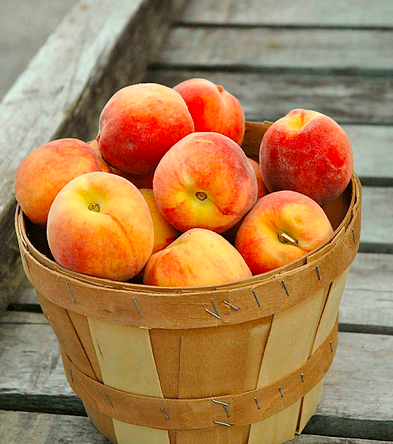 Image via Flickr Creative Commons, courtesy of Kathleen Dagostino
Image via Flickr Creative Commons, courtesy of Kathleen DagostinoAn author platform is the same. In the beginning, we need to build traction. We are forced out of our comfort zones. It isn’t natural to strike up conversations on Facebook. It is uncomfortable to get out there when we prefer to lurk.
Blogs take longer to write because we’re learning and finding our voice. We may even be struggling with perfectionism. It takes time to realize that it is A BLOG. It really doesn’t need to be worthy of a Pultizer in Journalism.
SHIP!
There will come a time when the super hard work is done. Sure there will always be work, but not like in the beginning. After years of practice, I can knock out 1000 words in an hour. When I was new? It was not pretty. My blog was not fun when I was my only follower. I still remember being so excited to meet my first commenter Akismet.
Strange name. Is he foreign?
I KID YOU NOT, when this nice fellow Akismet welcomed me to WordPress, I actually commented back to try and start a conversation #YesIAmAMoron. (For those who don’t know, Akismet is the WordPress spam filter *face palm*)
But trust me, blogging with NO followers? Unfun. Blogging with 35K followers? LOADS of fun. But that didn’t happen overnight.
Same with platform and sales. J.K. Rowling finds it way easier to sell books in 2017 than she did in 1997. In 1997 she had not yet cultivated billions of fans. All she has now? Maintenance and enjoying harvest.
Slow and steady wins the race. Pace yourselves and realize there are no fruits without roots, no perks without the works. Trust the process, and in the meantime? I am here 
April 14, 2017
Oops! Hold on. You’re Newbie is Showing.
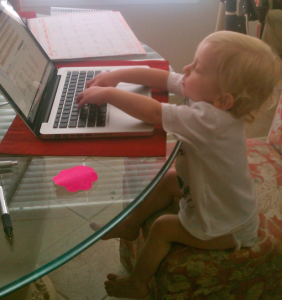 Baby Spawn….budding novelist.
Baby Spawn….budding novelist.Get it? You’re newbie is showing? Ah we are talking about the deeper stuff today 

